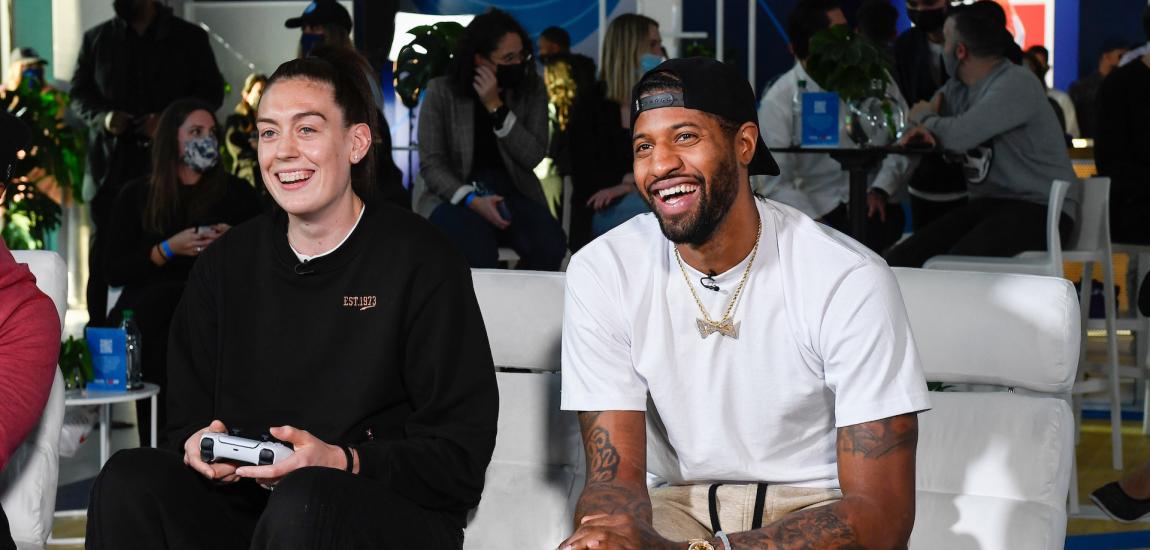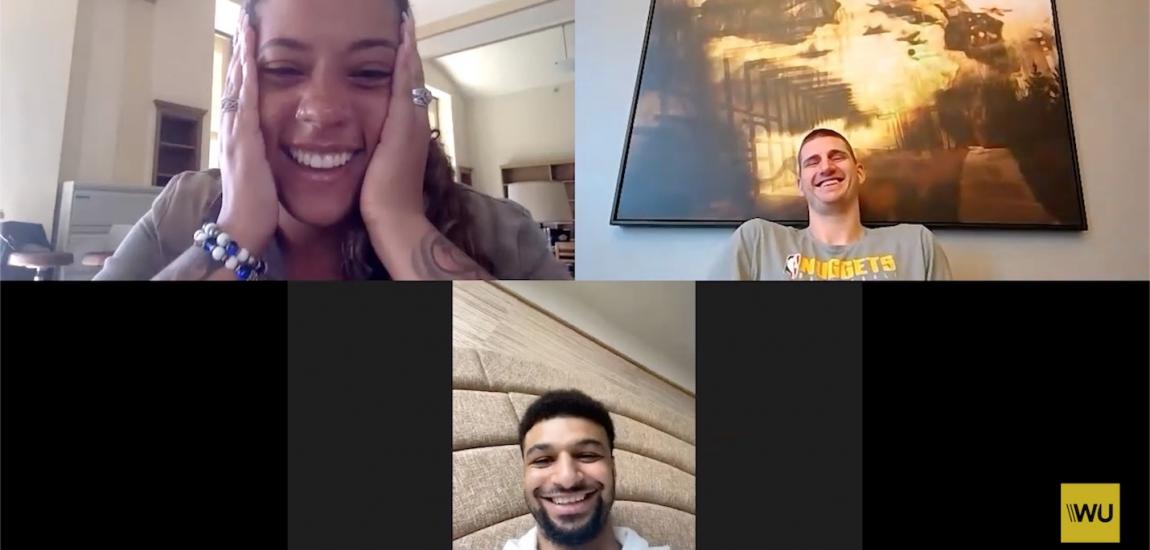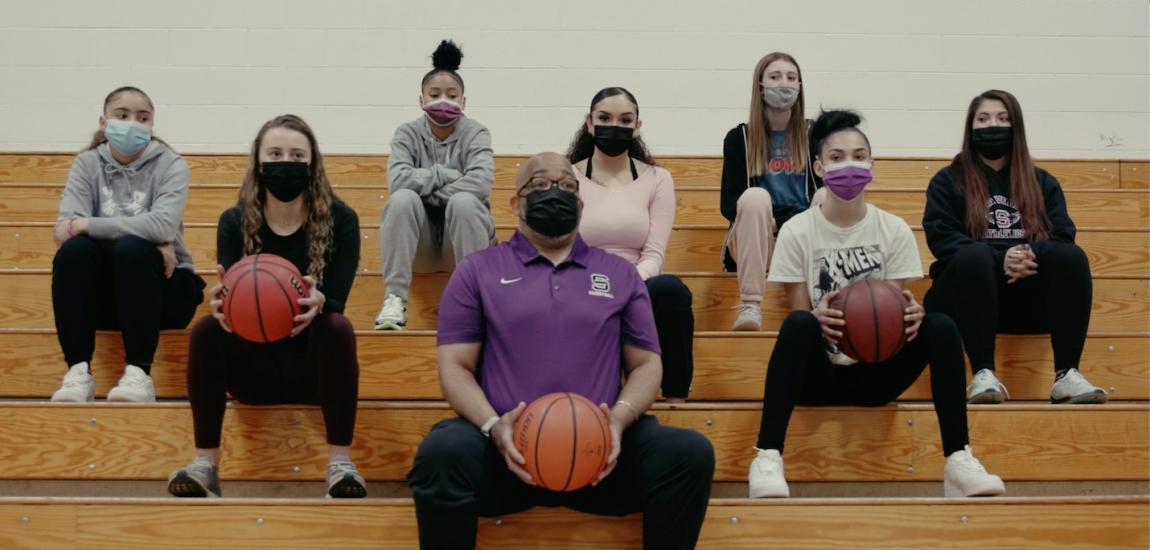Gonzaga is an NCAA tournament No. 1 seed -- for the second time. The Bulldogs wear Nike swooshes, play regular-season games on ESPN and have alumni in the NBA. College basketball fans know the program and expect the Bulldogs to be a favorite year in, year out.
But don't be fooled.
Gonzaga is America's underdog. And this year's Final Four appearance, the first in program history, is a fulfillment of a four-decade effort. It's college basketball's ultimate example of the American Dream.
Gonzaga University, tucked away in Spokane, opened its doors in 1887, two years before the state of Washington was admitted to the union. In 1907-08, the first documented Gonzaga basketball team went 9-2. Then came decades of mediocre basketball. From 1907-1993, Gonzaga won a share of two regular-season conference titles, the Big Sky in 1965-66 and 1966-67. The Zags made zero NCAA tournaments in those 86 years.
The founding of modern Gonzaga can be traced back to Dan Fitzgerald, an assistant coach from 1972-1974 before leaving to be an assistant at Santa Clara from 1975-1978. When Gonzaga hired him as head coach in 1978, one of Fitzgerald's first orders of business was to initiate a conference switch. He wanted the Bulldogs in the West Coast Athletic Conference (now the West Coast Conference).
"I think the WCAC, with school[s] like San Francisco, Santa Clara, Portland, Seattle U. and San Diego, is closer allied in athletic philosophy," Fitzgerald told The Spokesman-Review on June 6, 1978. "The WCAC schools have limited intercollegiate athletic programs -- basketball and baseball are their sports -- and that's like us."
Critics saw Fitzgerald as belittling his own university's athletic abilities, favoring a distant geographic conference with fewer sports. And maybe they were right. But Fitzgerald, who also became the school's athletic director that fall, set the wheels in motion to make Gonzaga a basketball-specific power.

Around this time, Fitzgerald walked around the corner to recruit the best player Spokane's Gonzaga Prep had to offer: John Stockton, who became a third-generation Gonzaga University student. The Bulldogs won 19 games in Stockton's freshman season. Fitzgerald handed off the head coaching job to assistant Jay Hillock before Stockton's sophomore season to focused on his athletic director duties. Stockton could never bring Gonzaga to the NCAA tournament, going 17-11 in his senior year, but he put the school on the college basketball map. He won WCC Player of the Year in 1984 and earned a spot at the 1984 U.S. Olympic tryouts. He was the 16th overall pick of the NBA draft that year, going to the Utah Jazz.
Fitzgerald returned to the bench in 1985 and kicked things into another gear. In 1989, he hired a graduate assistant named Mark Few. In 1991-92, Gonzaga won 20 games for the first time since the 1967 Big Sky title. In 1993-94, Gonzaga won a regular-season conference title and made its first NIT. And in 1994-95, Gonzaga finally made the NCAA tournament as a No. 14 seed. The Bulldogs were blown out by No. 3 Maryland, 87-63.
Fitzgerald handed off the program to assistant Dan Monson in 1997. In Monson's second season, he led Gonzaga back to the NCAA tournament -- and all the way to the Elite Eight. With a 25-6 record, Gonzaga entered the tournament as a No. 10 seed. It then knocked off Minnesota, Stanford and Florida -- all ranked in the AP Poll at the time. The Zags finally fell to eventual national champion UConn, 67-62, in the regional final.
Minnesota, clearly impressed by what it saw, snatched up Monson in the offseason. Few, who technically became an assistant in 1990 and associate head coach just after the 1998-99 season, was promoted to head coach. He immediately led Gonzaga to two more Sweet Sixteens, one as a No. 10 seed and one as a No. 12 seed. In those three seasons, from 1998-2001, Gonzaga went 80-23, including 7-3 in the NCAA tournament. Gonzaga was the lower seed in nine of those ten games. Gonzaga had earned some respect.
"When Few was hired as an assistant coach in 1990, Gonzaga was thought of as the worst job in the WCC," wrote Rob Dauster of NBC Sports, earlier this week. "The program, located in Spokane, Washington, which isn't exactly a hotbed for recruiting, had never been to an NCAA tournament. The school didn't even have a weight room for the team."
Adds Yahoo! Sports' Jeff Eisenberg: "Players would sign out sweats and jerseys at the beginning of every school year and turn them back in nine months later. Sneakers were the only gear players received new, but obtaining a fresh pair typically required proving the old ones had a hole in the bottom."
Gonzaga has made the NCAA tournament in all 18 of Mark Few's seasons as head coach. Under his watch, the Bulldogs have been a top-four seed seven times, including this season being its second time as a No. 1 seed. They have only been a double-digit seed three times since 2001-02 and never higher than No. 11. Few has won his first-round game in 16 of his 18 tournaments, and this year marked his seventh Sweet Sixteen appearance.
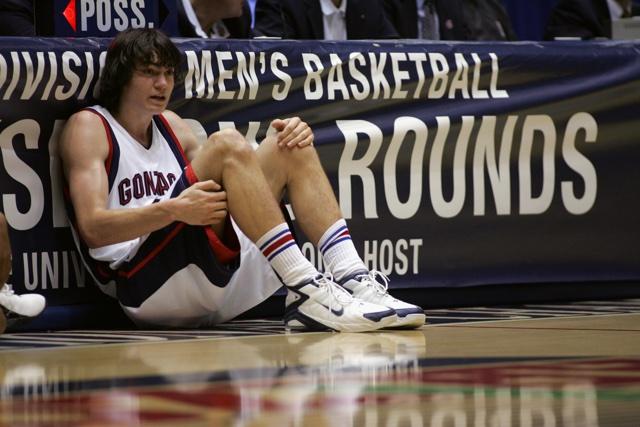
In 2007, Gonzaga got perhaps its flashiest upgrade with its first chartered plane, a legitimate need for easier in-conference travel and more opportunity for non-conference travel.
"You can't fly anywhere to and from Spokane without going through someplace else; now they're going straight to the destinations and back, so we'll save a night's hotel," athletic director Mike Roth told The Spokesman-Review that year. "On games during the week, they'll get back the night of the game, so academically, it should have another positive impact and ultimately it should have an impact on recruiting."
Gonzaga's renaissance is also evident in the quality of players it has attracted. Before Stockton, Gonzaga had never produced an NBA player. Fitzgerald recruited one more in Mike Champion, and Monson brought in Richie Frahm. Few recruited 12 future NBA players (and counting), including Dan Dickau, Ronny Turiaf, Kelly Olynyk, Robert Sacre, Austin Daye, Domantas Sabonis and of course, Adam Morrison, the No. 3 overall pick in the 2006 NBA Draft. Morrison was left sobbing on the ground after his 2006 Sweet Sixteen loss. Olynyk's 2013 team was the AP No. 1 when they lost in the Round of 32.
"I've been there 28 years," Few said after Saturday's Elite Eight win over Xavier. "My first year on staff, we won four Division I games. And I mean, this wasn't even possible. And each year, we got better and better, and then we got really, really good.
"[David Pendergraft] was on those teams that were really good but never quite got here. That's what makes this culture so special those guys, those former players -- the Pendos, the Turiafs, Olynyk, the Morrisons, the Dickaus, the Pangoses, and Bells -- these guys know it, they're still connected to these guys even though they never played together. And our culture is just so strong. And this was a culture win and a culture statement and couldn't be prouder."
Few never left. Almost every major program in the nation would have been happy to hire the man who turned a 4,800-undergrad university in a mid-major conference into a national power, but he stuck with Gonzaga and the West Coast Conference. In the volatile world of college coaching -- new Missouri head coach Cuonzo Martin is on to his fourth job in eight years and Illinois hire Brad Underwood has his third in three years -- Few has been loyal to Gonzaga. Despite all the Cinderella odds, he is finally going to a Final Four this week.
"Everybody was asking me, 'Is this your best team in November?'" Few says. "It's not fair. It's not fair in December. It's not fair in January. But they're 36-1, going to a Final Four. Absolutely. I mean, it is.
"But that's not taking anything from those other ones. It's hard to get to here where we are. And there were some other teams that were every bit as good and deserving and all that and just didn't catch a break. So I feel for them, but I know those guys on those teams are so happy for these guys, been getting their texts and calls these last couple of weeks."
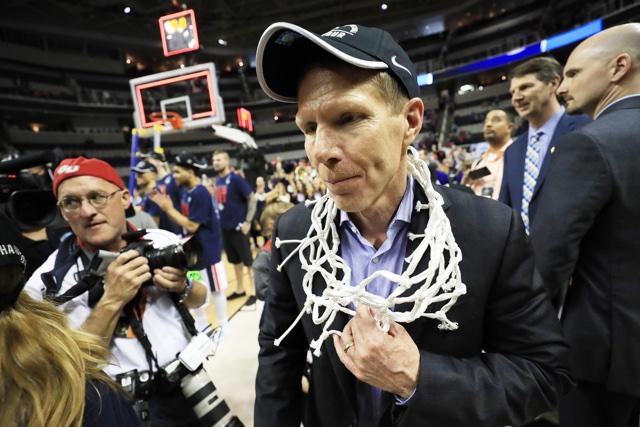
Gonzaga doesn't have the history of the Cubs or the bad luck of Cleveland. But for the small, but mighty Gonzaga fan base that makes the trip south to Phoenix this weekend, their loyalty will be validated.
The job is not done. With another Cinderella, South Carolina, waiting in the national semifinal, Gonzaga is just one win away from the national championship game. And just two wins away from an improbable national title.
Gonzaga may be a No. 1 seed now, but in the grand scheme of college basketball history, they might as well be a No. 16 seed.
-- Follow Jeff Eisenband on Twitter @JeffEisenband. Like Jeff Eisenband on Facebook.


